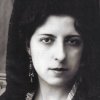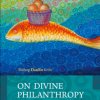Her Italian father Bruno Barilli was an influential composer, her Serbian mother, a distant relative of the Karađorđević dynasty, studied art. Milena herself studied at the Royal school of arts in Belgrade, Serbia (1922–1926) and in Munich (1926–1928).
.In the early 1930s she left Serbia and returned only for brief visits until the outbreak of World War II. During her stays in Spain, Rome, Paris and London, where she socialised with Jean Cocteau and André Breton, she was influenced by many western schools and artists, notably Giorgio de Chirico. After 1939 she stayed in New York only, where she died in a horse riding accident in 1945.
The topics of her work varied from portraits to imaginative interpretations of biblical stories. The motifs often included dream-like situations, veils, angels, statues of Venus goddess, and Harlequins. Many of her works are parts of permanent exhibitions in Rome, New York, Museum of Contemporary Art (Belgrade), and her hometown of Požarevac, where the house in which she was born has been converted into a museum in her honor.





